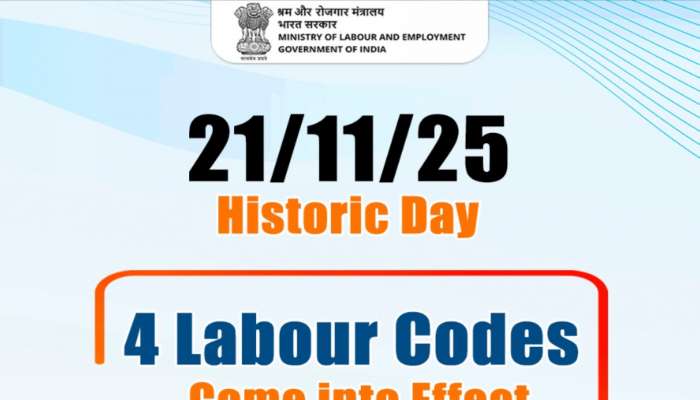
New Delhi: In a historic decision, four labour codes which subsume several labour-related laws, came into force from Friday, as part of efforts towards a future-ready workforce for Aatmanirbhar Bharat by modernising regulations, enhancing workers' welfare and aligning the labour ecosystem with the evolving world of work.
The four Labour Codes - the Code on Wages, 2019, the Industrial Relations Code, 2020, the Code on Social Security, 2020 and the Occupational Safety, Health and Working Conditions Code, 2020, introduce major welfare initiatives and reforms that strengthen worker protection and simplify compliance for employers, an official release said.
The new Labour Codes ensure formalization of employment in terms of mandatory appointment letters to all workers. Written proof will ensure transparency, job security, and fixed employment, the release said.
Under Code on Social Security, 2020 all workers including gig and platform workers will get social security coverage. All workers will get PF, ESIC, insurance, and other social security benefits.
Under the Code on Wages, 2019, all workers will receive a statutory right minimum wage payment. Minimum wages and timely payment will ensure financial security.
Employers must provide all workers above the age of 40 years with a free annual health check-up. Promote timely preventive healthcare culture.
Mandatory for employers to provide timely wages, ensuring financial stability, reducing work stress and boosting overall morale of the workers.
According to release, women are permitted to work at night and in all types of work across all establishments, subject to their consent and required safety measures. Women will get equal opportunities to earn higher incomes - in high paying job roles.
ESIC coverage and benefits have been extended Pan-India - voluntary for establishments with fewer than 10 employees, and mandatory for establishments with even one employee engaged in hazardous processes. Social protection coverage will be expanded to all workers.
There will also be reduction in compliance burden.
The release said that many of India's labour laws were framed in the pre-Independence and early post-Independence era (1930s-1950s), at a time when the economy and world of work were fundamentally different.